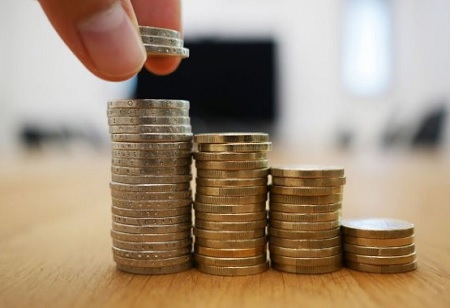World Bank is expanding its goal to work for a liveable planet
By Consultants Review Team
 Ajay Banga, the president of the World Bank, stated on the sidelines of the G20 meeting in New Delhi that the organization's mission is being revised to include the eradication of poverty on a "liveable planet" as part of ongoing changes. The G20 has committed to making multilateral lending effective against poverty. "The World Bank and I are working very hard on the reform agenda. It begins by changing the bank's mission statement to include a liveable world in addition to poverty, which is still a priority, according to Banga.
Ajay Banga, the president of the World Bank, stated on the sidelines of the G20 meeting in New Delhi that the organization's mission is being revised to include the eradication of poverty on a "liveable planet" as part of ongoing changes. The G20 has committed to making multilateral lending effective against poverty. "The World Bank and I are working very hard on the reform agenda. It begins by changing the bank's mission statement to include a liveable world in addition to poverty, which is still a priority, according to Banga.
"The goal is to eradicate poverty on a planet where people can live, and by doing that, we expand the aperture of our vision to include climate, pandemics, fragility, and things that we are currently experiencing, and these are intertwined with poverty alleviation it's very difficult to segregate them," he said. Former Mastercard executive chairman Banga made notice of the necessity for cooperation among multilateral development banks on issues of digital governance and climate change, as well as the inclusion of the private sector to encourage investments in renewable energy in developing countries.
"I recently made an extremely significant announcement with the Inter American Development Banks on the Amazon (region) on Caribbean climate and are digitising government. We've also announced a private sector lab; N. Chandrasekharan, chairman of Tata Sons, is one of its participants. This project is being led by Mark Carney, the UN climate envoy, and Shriti Vadera, a former UK minister. Its goal is to gather suggestions from the private sector, asset managers, and operators on how the bank can encourage more investment in renewable energy in emerging markets.
The Private Sector Investment Lab is concentrated on increasing financing for the infrastructure needed for the switch to renewable energy sources. The New Delhi G20 Leaders' Declaration on Saturday endorsed a roadmap for putting the group's independent review of multilateral development bank (MDB) capital adequacy frameworks (CAFs) into action. This could result in an additional $200 billion in lending headroom over the following ten years for the sustainable development goals (SDGs) and climate finance.
In the statement, G20 leaders recognised the need for a global system of financing for development that could assist developing nations, "in particular the poorest and most vulnerable," in overcoming economic obstacles such as those brought on by climate change. The chairman of one of the biggest development lenders in the world noted that as women made up more than 50% of the employment, management, and social workforce, they needed to be "at the centre" of the reforms.




